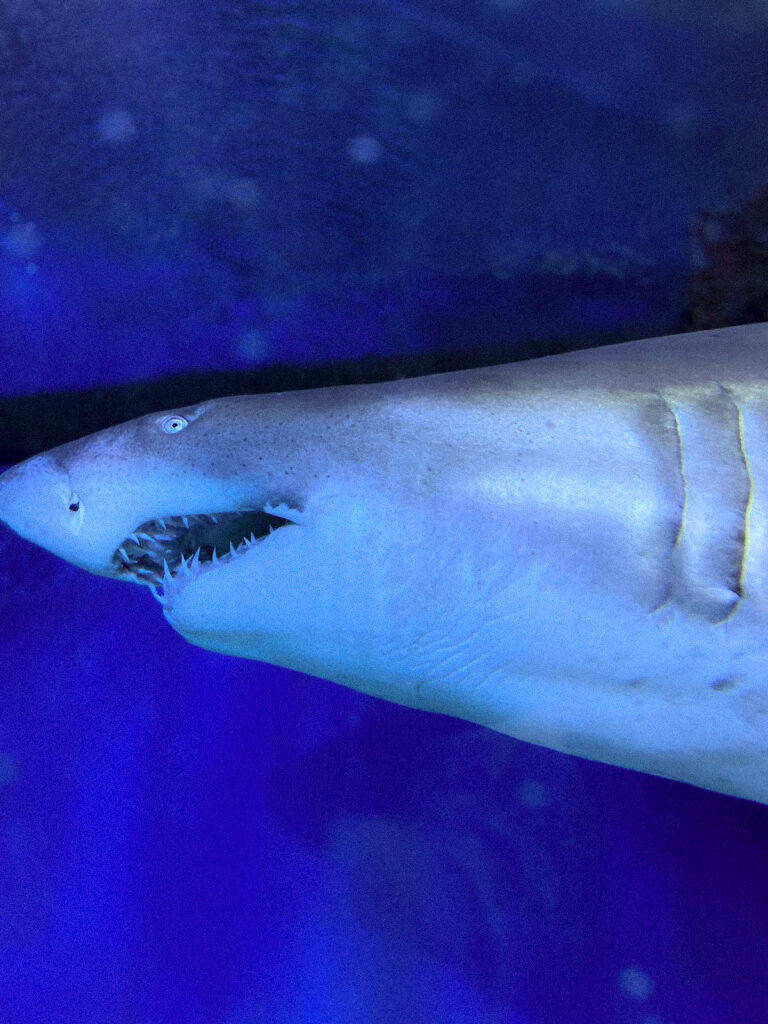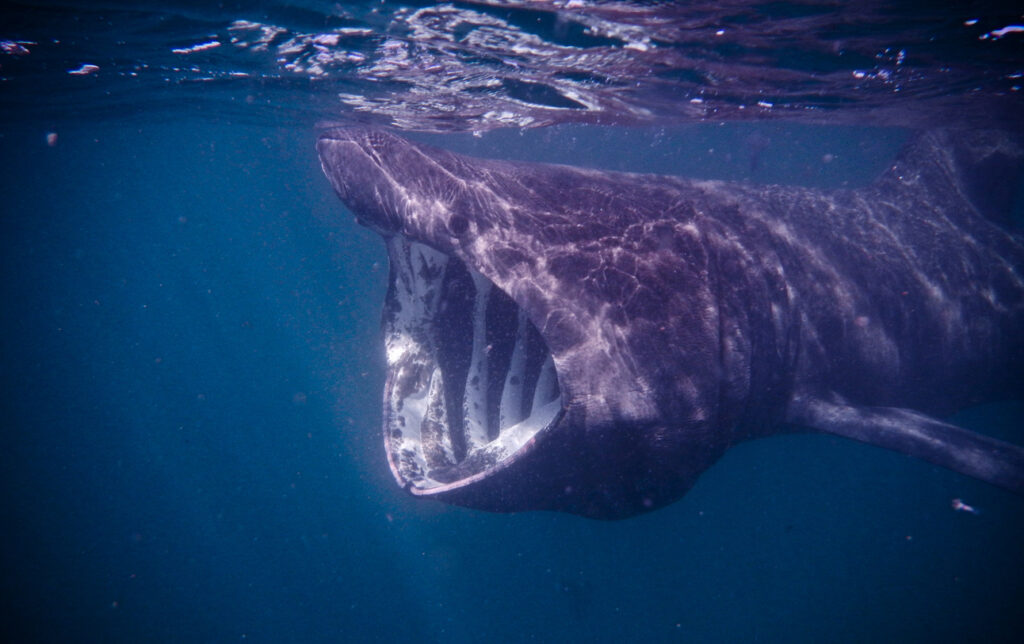Sharks are fascinating creatures, and one of the most iconic features of these apex predators is their teeth. Shark’s teeth come in various shapes and sizes, and they play a vital role in their survival and the dominance of their respective food chains. In this blog post, we will delve into the world of shark teeth. Exploring how many teeth and rows of teeth different species have, what they are made of, and how to identify them.
How Many Teeth Do Sharks Have?
Sharks are known for their impressive set of gnashers, with some species having hundreds or even thousands of teeth. The number of teeth varies among different shark species. It’s worth noting that sharks continuously shed and replace their teeth throughout their lives.
Great White Sharks can have up to 300 teeth at any given time. They have multiple rows of teeth, typically around five, with new teeth developing to replace lost or damaged ones whenever they’re needed.
How Many Rows of Teeth Do Sharks Have?
When it comes to shark teeth, there isn’t a one-size-fits-all answer to how many teeth they have, it is entirely dependent on the species of shark. As mentioned earlier, great white sharks typically have around five rows of teeth. These rows are staggered, with new teeth constantly moving forward to replace older ones. This arrangement ensures that they always have a sharp set of teeth ready to hunt.

Do Basking Sharks Have Teeth?
Basking sharks, in contrast to great whites and many other predatory shark species, have small, hook-like teeth that are quite different from the sharp, serrated teeth of predators. These teeth are not used for capturing prey but are vestigial remnants of their evolutionary history. Basking sharks primarily rely on their gill rakers to filter out plankton and other small organisms from the water.
Can Basking Sharks Close Their Mouths?
While most sharks can close their mouths to some extent, basking sharks (the second-largest shark species) have an interesting adaptation. As basking sharks primarily feed on plankton, they have mouths that are adapted for filter-feeding. Their mouths are designed to remain open as they swim. This allows them to filter tiny organisms from the water – talk about eating on the go!

What Are Shark Teeth Made Of?
Shark teeth are not made of bone, as some might assume, but rather of a hard material called dentin. Dentin is similar in composition to our teeth. It provides the hardness and durability required for a shark’s predatory lifestyle. The outer layer of a shark’s tooth is covered in enamel, which is even harder than dentin and helps maintain the sharpness of the tooth.
How to Identify a Shark’s Tooth
Identifying a shark’s tooth can be an exciting and fascinating endeavour for beachgoers and fossil enthusiasts. Shark teeth come in various shapes and sizes, which can be helpful in identifying the species they belong to. For example, the triangular teeth of a great white shark are distinct from the narrow, pointed teeth of a tiger shark.
The location where you find a shark tooth can also provide clues about the species. For instance, some species of sharks have specific geographic ranges, so finding a particular type of tooth in a specific location can indicate the presence of that shark species.
Are Shark Teeth Black?
When a shark is alive, their teeth can come in several different colours but are usually white in colour. Fossilised shark teeth have often absorbed lots of minerals by the time they’re discovered, meaning they will darken over time.
Shark teeth are not only essential tools for survival but also objects of fascination and discovery for many enthusiasts. Understanding the diversity of shark teeth, their structure, and their functions adds to our appreciation of these incredible marine creatures. Whether you’re combing the beach for shark teeth or simply curious about these apex predators, knowing more about their dental wonders can enhance your connection to the underwater world.
Come and check out our very own species of sharks and see if you can spot their teeth as they swim past! Book your tickets today to get the chance to see some of the world’s most fascinating marine life up close.
